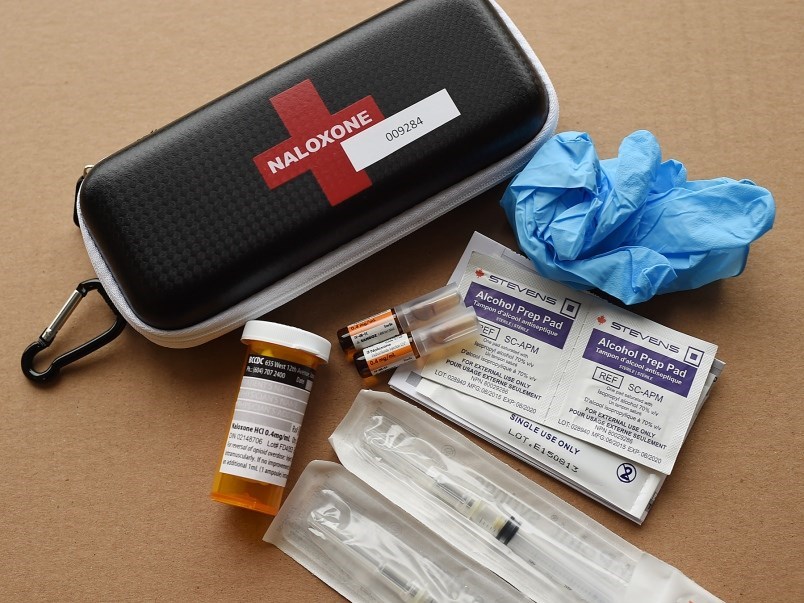The Squamish-Lillooet Regional District (SLRD) has proclaimed Aug. 25 to 31 as International Overdose Awareness Week, joining communities worldwide in recognizing the devastating toll of the toxic drug crisis. The move comes just a few weeks after the St’át’imc Chiefs Council declared its own state of emergency over the toxic drug crisis.
While overdose deaths are often associated with urban centres, local service providers warn northern communities like Pemberton, Mount Currie and the surrounding St’át’imc Nations and unincorporated communities face unique challenges. Fewer health services, a lack of affordable housing and the need to travel long distances for detox or treatment contribute to what frontline workers describe as a worsening crisis.
“Housing is central to everything,” said Stevie Madden, a program manager with Sea to Sky Community Services (SSCS). “If you’re not housed, your mental health and substance use are affected. In Pemberton and the [southern St’át’imc] Nations, affordable and safe housing options are scarce, which increases the likelihood of relapse or crisis.”
Studies of B.C.’s overdose crisis show while most overdoses happen in cities, people in rural areas are more likely to die when an overdose occurs. According to the BC Centre for Disease Control, the odds of an overdose being fatal are about 30-per-cent higher outside urban centres. In some of the most remote regions of the province, the risk climbs to nearly 50-per-cent higher.
Madden said part of the issue is detox and recovery programs are still concentrated in Vancouver, which can put people in triggering environments.
“You go to detox for two weeks, then step out into an area where drugs [can be] more accessible than ever,” he said. “It risks people relapsing.”
Service providers in the corridor say they are left to address the root causes of addiction: unstable housing, poor mental-health supports and fractured family systems. SSCS runs more than 40 programs—from counselling and youth support to housing outreach and the Pemberton Food Bank—and collaborates with RCMP, Vancouver Coastal Health and Indigenous organizations through regular “situation tables” to coordinate urgent cases.
But the gap between demand and resources continues to widen. Pemberton’s population has grown sharply, yet waitlists for counselling and family supports are growing. Madden said staffing and resources have not kept pace with the demand.
The Harrow Road project in Pemberton is being described as an answer. SSCS expects the new community hub will host multiple services under one roof, including Foundry—a provincial program that integrates youth mental health, substance-use support, primary care and peer services. Foundry already operates a hub in Squamish, and Foundry staff are working out of temporary facilities in Pemberton. SSCS executive director Jaye Russell said a permanent home for services in Pemberton will help address longstanding inequities—including housing through the Harrow Road building.
“There’s a clear imbalance in access across the corridor,” Russell said. “Whistler and Squamish have established services, but families in Pemberton and the northern communities deserve the same level of care. Local solutions are needed for local challenges.”
Both Russell and Madden say stigma remains a barrier. While attitudes have shifted, communities can still attach shame to substance use, making people less likely to seek help.
“We try to stress that relapse or crisis isn’t a moral failure,” Madden said. “It’s a breakdown in access to resources.”
For Russell, International Overdose Awareness Week is a reminder that behind each statistic is a family in crisis.
“Every program we offer is ultimately about walking alongside people toward a healthier future,” she said. “We're just one piece of that overall suite of supports, and we're really grateful to be a part of it.”
If you or a loved one need help, the following resources are available:
- Kuu-Us Crisis Line (Indigenous-specific, 24/7): 1-800-588-8717
- Sea to Sky Crisis Line (24/7): 1-866-661-3311
- Mental Health & Addictions, Pemberton (Monday to Friday, 8:30 a.m. to 4:30 p.m.): 604-698-5861
- Kids Help Phone: 1-800-668-6868/youthinbc.com
- Pemberton Health Centre (24 hours): 604-894-6185
Naloxone, a medication that temporarily reverses the effects of opioids, is available in B.C. without a prescription. A full list of sites with take-home Naloxone kits across the province can be found at towardtheheart.com. Toxic drug alerts can be found on the same site. For alerts in your health authority, text JOIN to 253787.
International Overdose Awareness Day is Aug. 31. More information is available at overdoseday.com.





